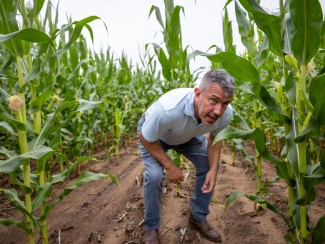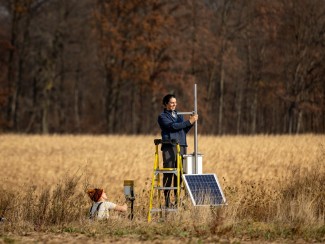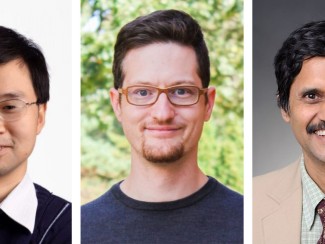While scientists learn more with each passing study about the way the invisible lives of fungi, bacteria, viruses and other microscopic organisms intersect with much larger plants and animals as well as the planet, Tim Donohue and a group of prominent scientists want to make sure researchers don’t miss the giant forest for the tiny trees.
Donohue, a UW–Madison bacteriology professor and director of the Great Lakes Bioenergy Research Center, joined 17 other scientists from around the world and representing a wide range of disciplines today (Oct. 28, 2015) to lay out a case for an organized approach to harnessing the power of microbes to tackle many of the world’s most pressing problems.
Led by Jeff F. Miller, a microbiology professor at the University of California, Los Angeles, in the journal Science, and microbiologist Nicole Dubilier of Germany’s Max Planck Institute for Marine Microbiology, in Nature, the authors proposed a Unified Microbiome Initiative to supply key knowledge and techniques to address sustainable agriculture, chemical and energy production, climate change, disease and more.
Discoveries ancient and modern illustrate the importance of microbes.





